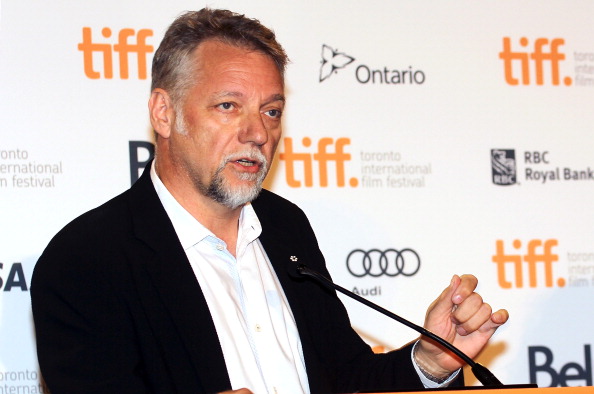TORONTO – Renowned Toronto photographer Edward Burtynsky is filled with hope these days as he continues his decades-long crusade to capture environmental issues in his work.

For one thing, he’s just won a Governor General’s Award in Visual and Media Arts, which he hopes will put a national spotlight on his environmental messages and on the importance of visual arts.
The 61-year-old, who was the subject of Jennifer Baichwal’s acclaimed documentary “Manufactured Landscapes,” is also encouraged by changes in government attitudes toward environmental issues.
“There’s much to be hopeful for in that we’ve now had the COP 21 in Paris (which) has come out with a consensus to move forward with real targets, many of those to be determined yet but with a real purpose,” Burtynsky said in a phone interview.
“Seeing our own government … tackling with all the premiers some kind of a commitment to a real carbon tax or something that’s going to have a profound shift in terms of a balance.
“And I just recently saw Al Gore give a talk at the TED (Technology, Entertainment, Design) conference and saying that we’ve hit this interesting point where … all of a sudden the cost of alternative energy is equal to or cheaper than conventional energy.”

Get daily National news
Burtynsky is one of eight winners of this year’s Governor General’s Awards in Visual and Media Arts, administered and funded by the Canada Council for the Arts.
Independent peer juries pick the winners, who each receive $25,000.
Burtynsky is using his prize money to establish a $5,000 annual grant with the Scotiabank Contact Photography Festival, where he’s on the board. The grant will support a Canadian artist in the creation of a photobook, a tool that had “a huge effect” on his career, he said.
Other Governor General’s honourees this year include Toronto curator Marnie Fleming, filmmaker Philip Hoffman of Mount Forest, Ont., and textile artist Jane Kidd of Salt Spring Island, B.C.
Media artist Mark Lewis of London also got the honour as did three visual artists: Wanda Koop of Winnipeg, Suzy Lake of Toronto and William (Bill) Vazan of Montreal.
“Burtynsky, and each of the 2016 GGArts winners personify an issue at the crux of public debate, whether that’s on the environment, gender or identity,” Simon Brault, director and CEO of the Canada Council for the Arts, said in a statement.
“Their works move us as only the best art can. Burtynsky is a master of form with an impeccable commitment to aesthetics. At the same time, he challenges us, as citizens, to reconsider the future of our world, and our agency in shaping it.”
Burtynsky, who hails from St. Catharines, Ont., started documenting our changing relationship to nature while doing landscape work from 1979 to ’81.
He’s since had his photographic depictions of global industrial landscapes displayed in more than 60 major museums around the world.
He co-founded the Scotiabank Photography Award and co-directed, with Baichwal, the 2013 documentary “Watermark.”
The two are now working on a third film that has the working title “The Anthropocene.” It looks at the what geologists believe is a new epoch caused by the impact humans are having on the planet.
“I think we now have the tools, the technology to make choices, to have an alternative, to have a decent life without destroying the habitats that support all life,” said Burtynsky, who owns six hectares of forest two hours north of Toronto and uses carbon offsetting to minimize his imprint.
“The key thing is, can we get to those solutions fast enough? If we can get there fast enough, then I think we can avert the worst.”
He added: “But I think the world is rapidly waking up that we can’t keep going business as usual.”







Comments